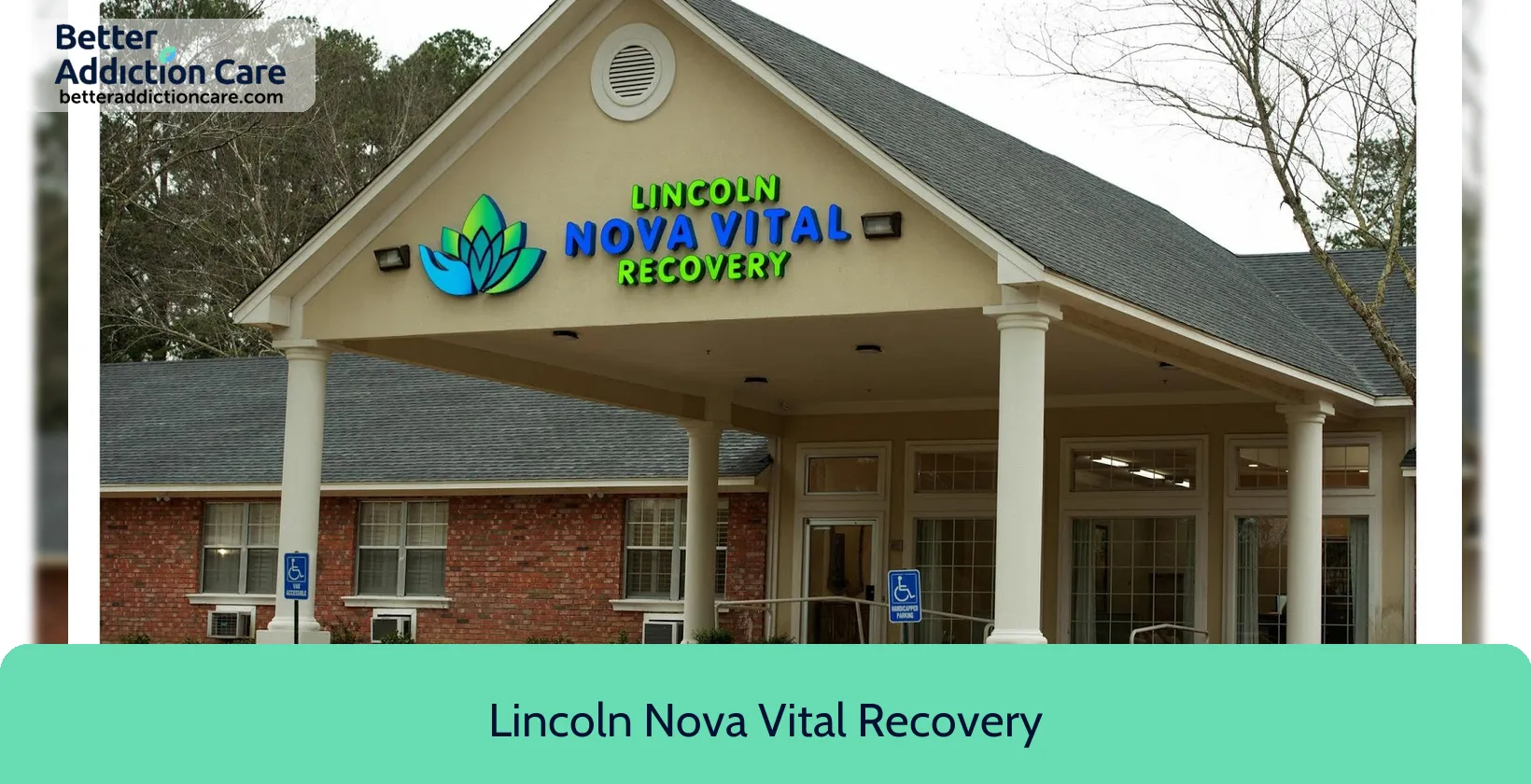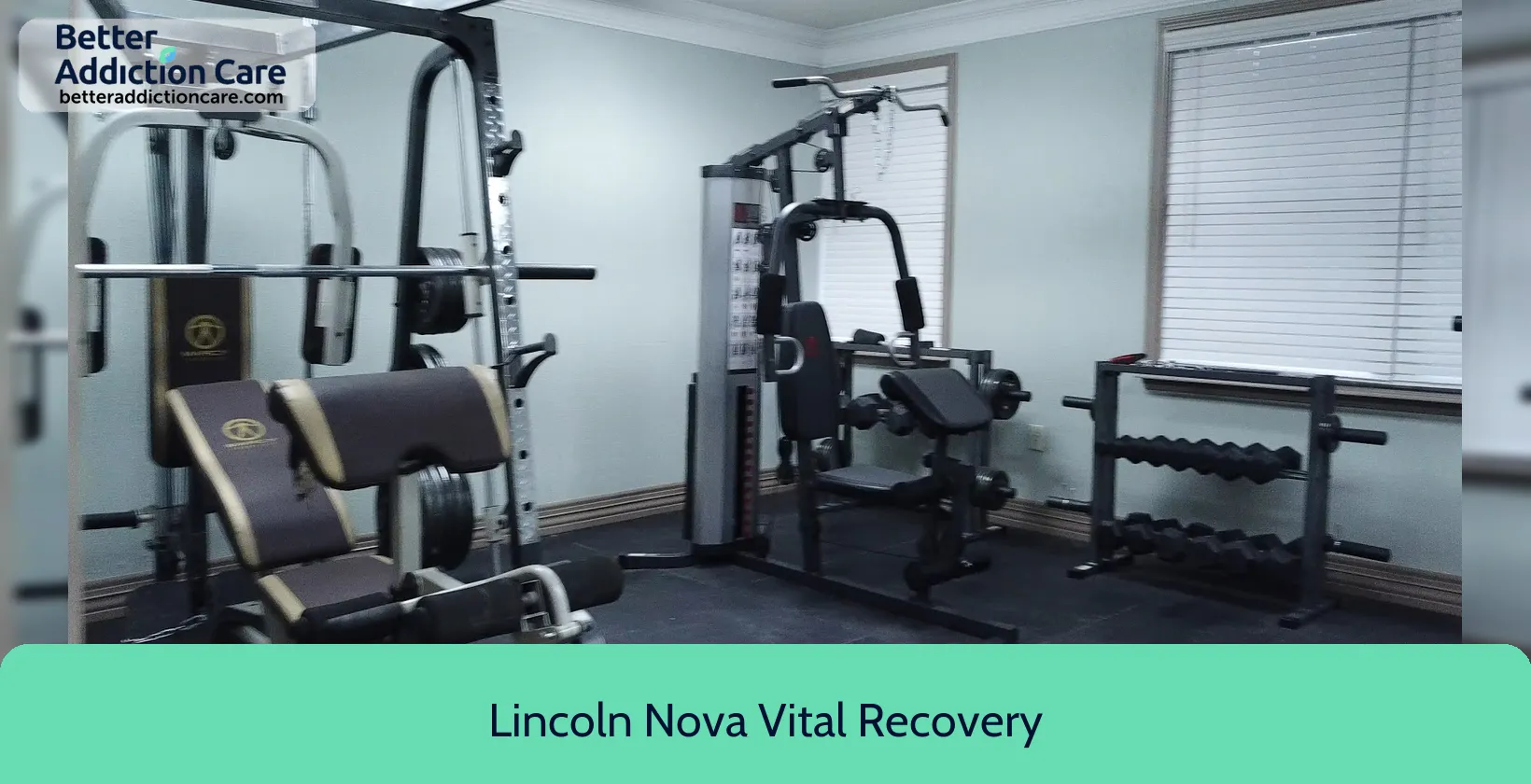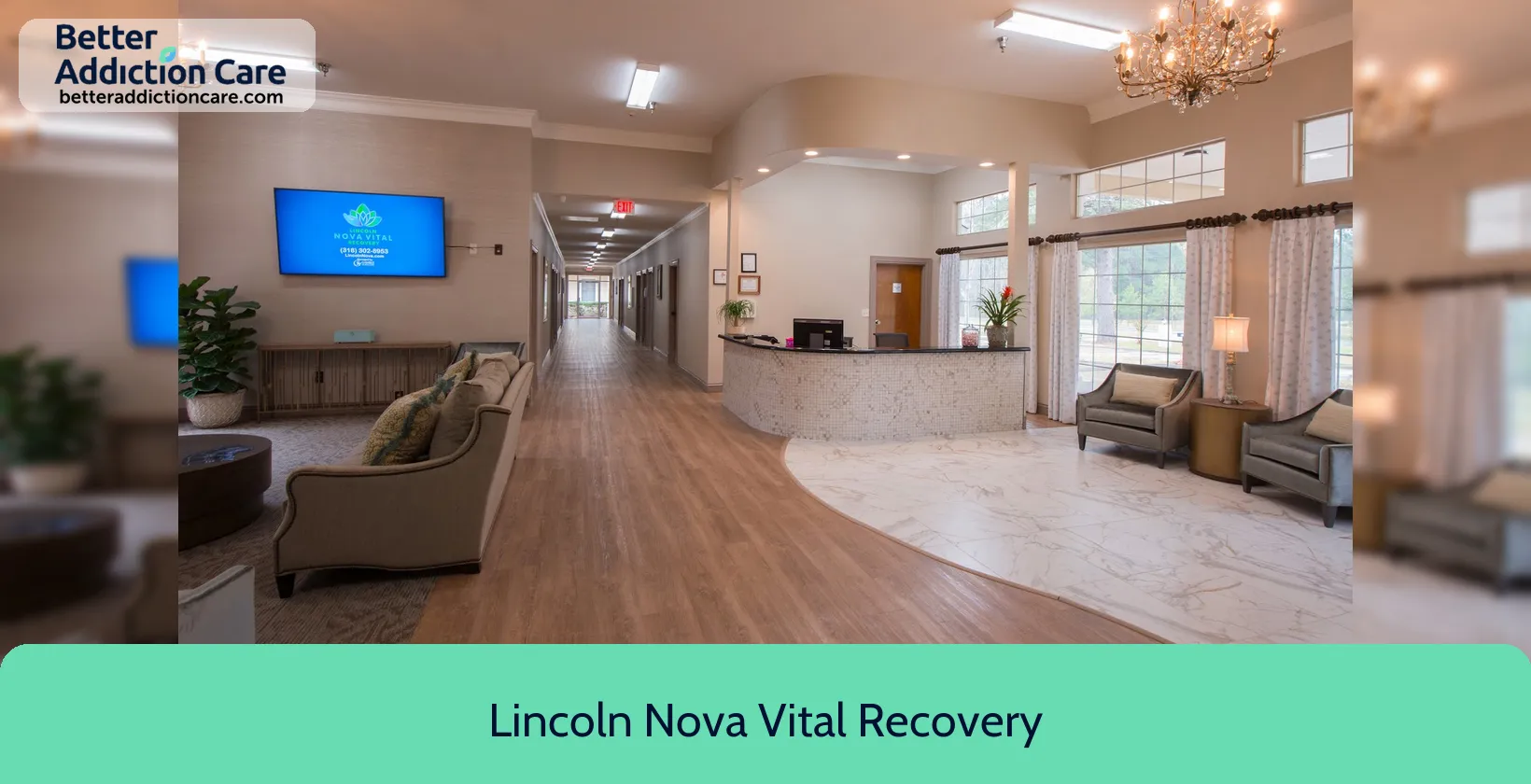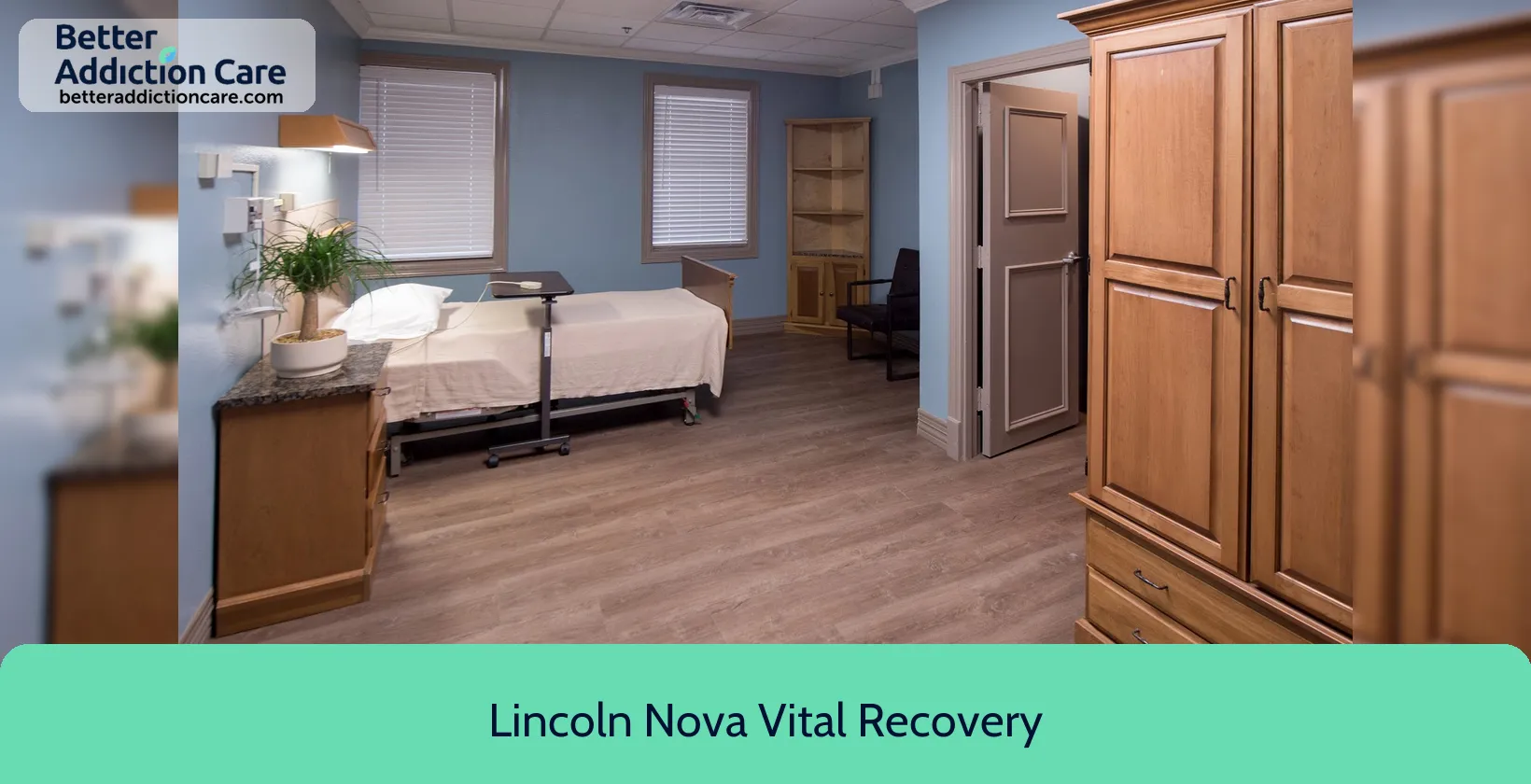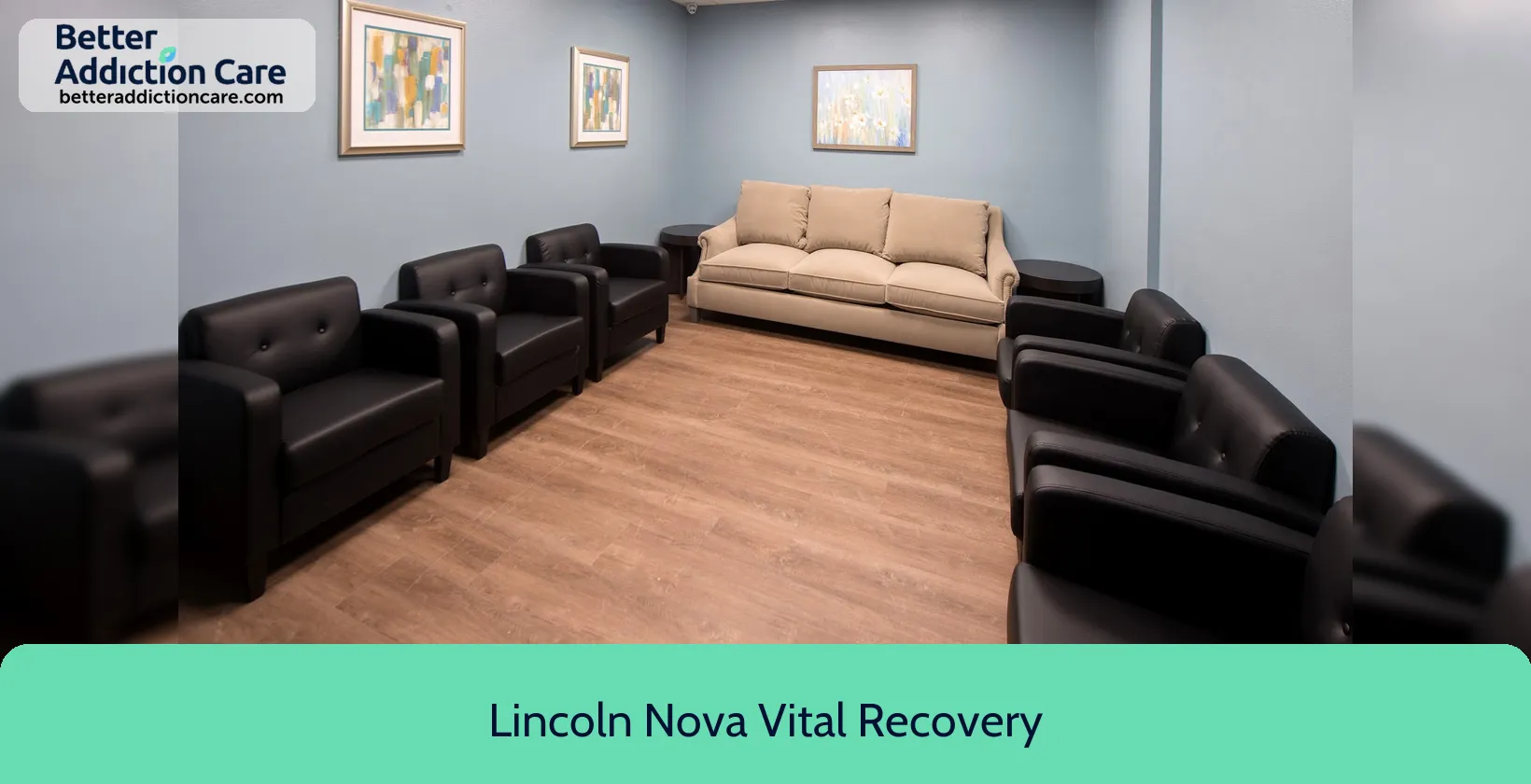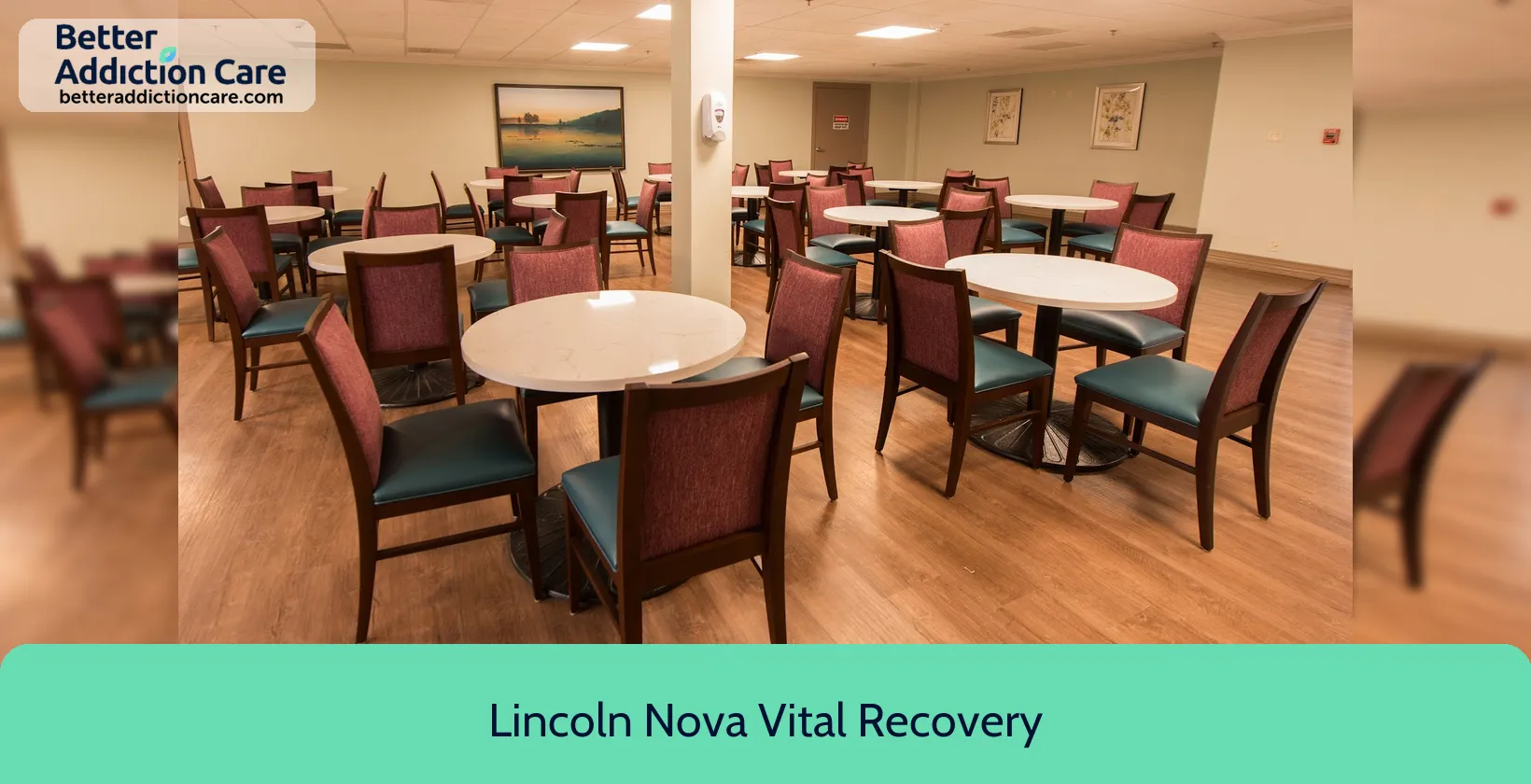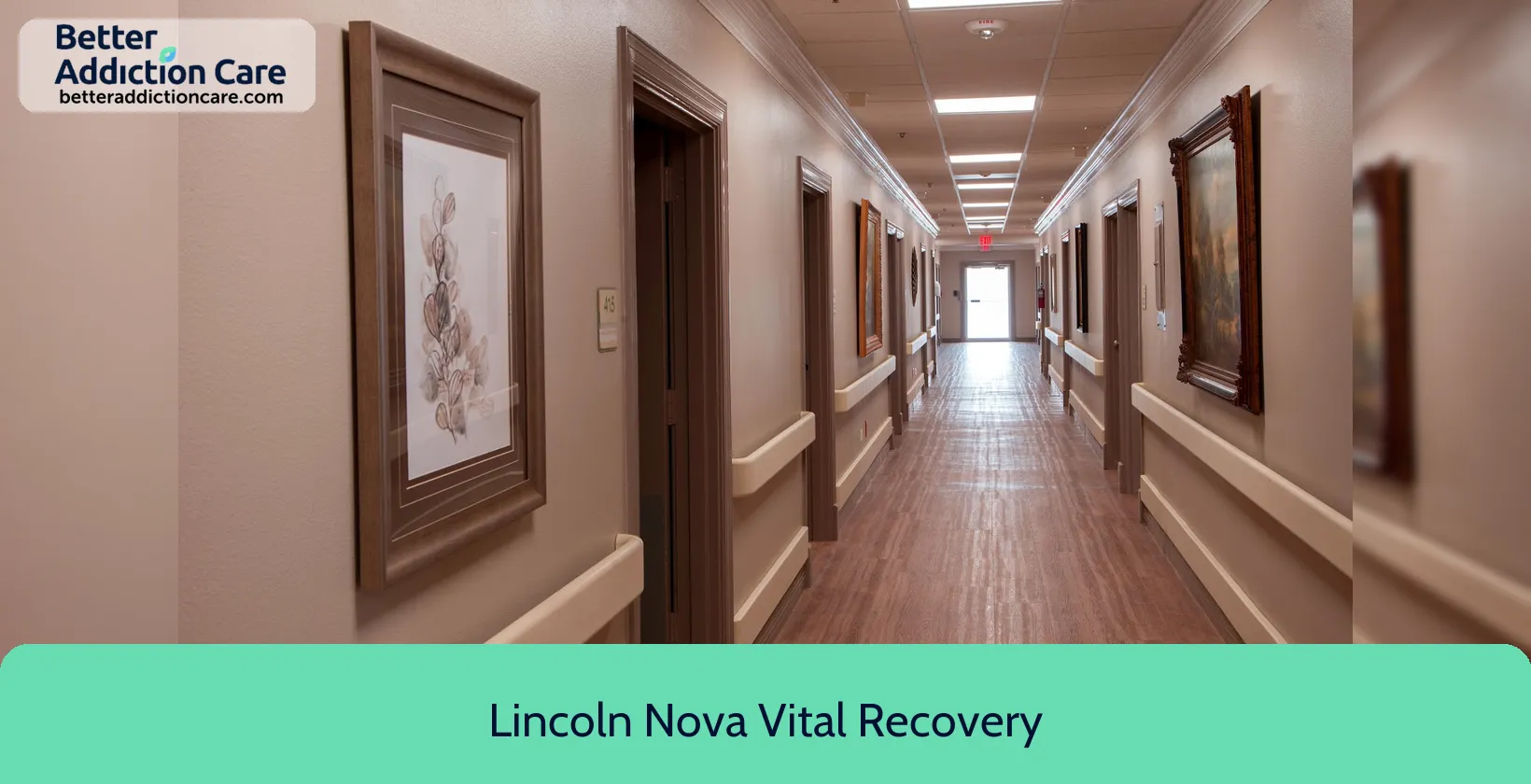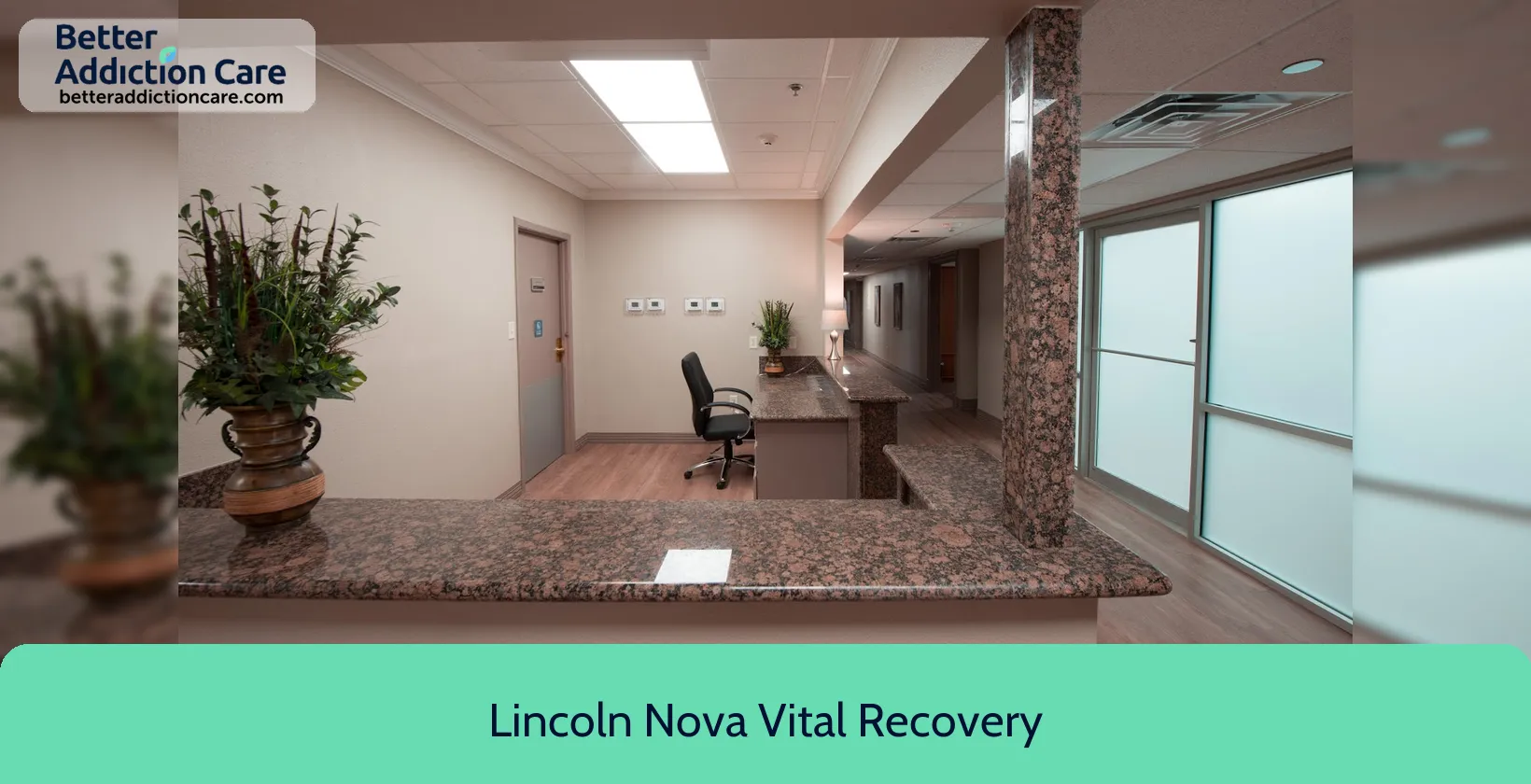Lincoln Nova Vital Recovery
Overview
Lincoln Nova Vital Recovery
Located in Ruston, Louisiana, Lincoln Nova Vital Recovery is a comprehensive treatment center offering a holistic approach to addressing alcoholism, opioid addiction, mental health issues, and substance abuse.
Holistic Treatment Approach
Lincoln Nova Vital Recovery emphasizes the importance of treating both the body and mind to achieve lasting sobriety. They provide continuous support from detoxification through post-discharge, ensuring that patients receive the care they need at every stage of their recovery journey.
Detoxification and Treatment
The center begins with medically supervised detox to safely manage withdrawal symptoms, followed by a structured treatment program that includes individual and group therapy, cognitive-behavioral therapy, and other evidence-based practices. Patients benefit from a multidisciplinary team of healthcare professionals dedicated to their recovery.
In-Depth Aftercare Program
Understanding that the battle with addiction extends beyond the initial treatment phase, Lincoln Nova Vital Recovery offers an extensive aftercare program. This program includes support groups, scheduled follow-up meetings, and continuous engagement with recovery resources to help patients maintain their sobriety.
Comprehensive Support Services
Lincoln Nova Vital Recovery's commitment to its patients includes providing various support services designed to promote a healthy lifestyle and prevent relapse. These services encompass educational workshops, wellness activities, and relapse prevention strategies.
Facilities and Environment
The treatment center offers a serene and supportive environment conducive to healing, with amenities that promote physical and mental well-being. The facility is designed to provide a comfortable and safe space for patients to focus on their recovery journey.
Lincoln Nova Vital Recovery stands out for its true holistic approach to addiction and mental health treatment, continuous support through every stage of recovery, and an in-depth aftercare program that ensures patients receive ongoing care and guidance long after they leave the facility.
Lincoln Nova Vital Recovery at a Glance
Payment Options
- Cash or self-payment
Assessments
- Comprehensive mental health assessment
- Comprehensive substance use assessment
Age Groups
- Adults
Operation
- Private for-profit organization
Highlights About Lincoln Nova Vital Recovery
6.56/10
With an overall rating of 6.56/10, this facility has the following balanced range of services. Alcohol Rehabilitation: 8.00/10, Treatment Options: 6.24/10, Drug Rehab and Detox: 6.00/10, Insurance and Payments: 6.00/10.-
Alcohol Rehabilitation 8.00
-
Treatment Options 6.24
-
Drug Rehab and Detox 6.00
-
Insurance and Payments 6.00
Accreditations
The Joint Commission:

The Joint Commission accreditation for addiction and behavioral health is a prestigious recognition signifying a facility's commitment to delivering high-quality care and safety for individuals dealing with substance abuse and mental health issues. It involves rigorous evaluations and assessments, ensuring patients receive evidence-based treatment and exceptional care. This accreditation demonstrates a facility's dedication to continuous improvement and ethical practices, building trust among patients and healthcare professionals seeking top-tier addiction and behavioral health services.
Registration: 639846
Treatment At Lincoln Nova Vital Recovery
Treatment Conditions
- Mental health treatment
- Alcoholism
- Opioid Addiction
- Substance use treatment
- Co-occurring Disorders
Care Levels
- Detoxification
- Aftercare
- Outpatient
- Hospital inpatient treatment
- Detoxification
Treatment Modalities
- Group counseling
- Creative Arts Therapy
- Individual counseling
Get Help Now
Common Questions About Lincoln Nova Vital Recovery
Contact Information
Other Facilities in Ruston

6.59

6.71
DISCLAIMER: The facility name, logo and brand are the property and registered trademarks of Rehab Services of NE LA, and are being used for identification and informational purposes only. Use of these names, logos and brands shall not imply endorsement. BetterAddictionCare.com is not affiliated with or sponsored by Rehab Services of NE LA.
